Home » Hunting Dogs » Gastric Dilatation-Volvulus (GDV) – Twisted Stomach or Bloat in Dogs
Gastric Dilatation-Volvulus (GDV) – Twisted Stomach or Bloat in Dogs
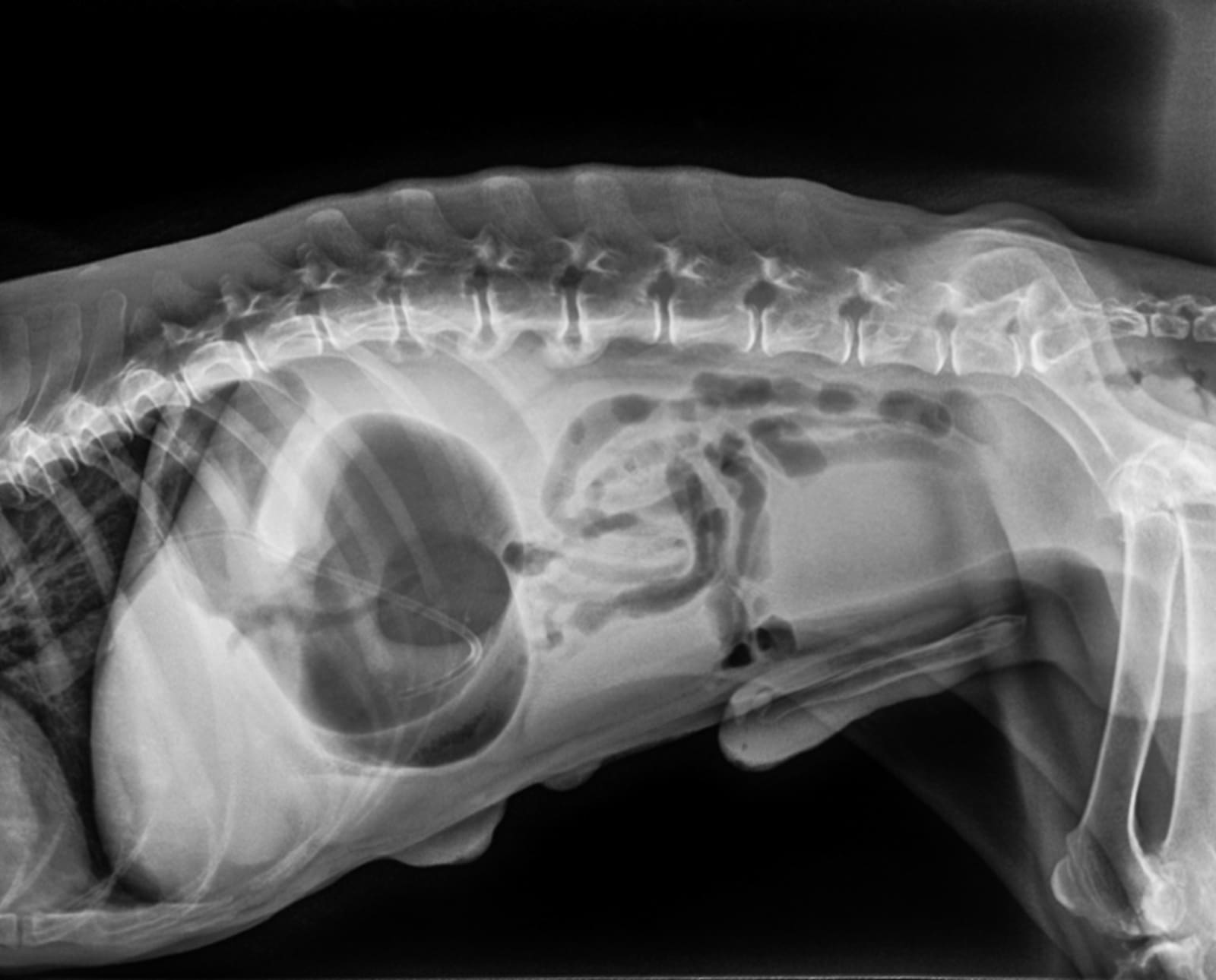
Dr. Jay Brekke, DVM has been a veterinarian in Colorado…
GDV, also known as twisted stomach or bloat, disproportionately affects hunting dogs. Here’s what you need to know to prevent and recognize this deadly condition.
As dog owners, we have all heard of bloat, twisted stomach, or, as your veterinarian would say, GDV. GDV stands for gastric dilatation-volvulus. This urgent medical condition occurs when a dog’s stomach fills with gas, food, or fluid and twists. This condition develops with almost no warning, can progress rapidly, and is always an emergency. Remember that “bloat” doesn’t always indicate a twisted stomach, or GDV, because bloat can be a large gas, food, or fluid-filled stomach without any twisting present.
Listen to more articles on Apple | Google | Spotify | Audible
As a veterinarian and fellow birddogger, I want to stress the importance of discussing and planning for this preventable condition.
Why Is Gastric Dilatation-Volvulus (GDV) An Emergency?
GDV is diagnosed when the stomach rotates 360 degrees clockwise from its normal position. Symptoms include vomiting, pacing, not wanting to eat, and a bloated appearance. The rotation displaces and entraps the stomach. Dilation and enlargement of the stomach then occur due to the accumulation of gas or fluid, and the “twist,” or volvulus, prevents the stomach contents from emptying. Pressure in the stomach rises, and the distending stomach presses on important blood vessels, compromising normal blood flow in your dog. When this occurs, a large sequence of urgent medical events begins with life-threatening consequences.
I don’t expect a layperson to know these medical terms. Still, I listed them out only to offer some of the medical consequences of the severity of this emergency. These medical events include:
- Gastrointestinal tract ischemia
- Hypovolemia shock
- Systemic hypotension
- Endotoxemia
- Hypoxemia
- Metabolic acidosis
- Disseminated intravascular coagulation
If your dog is experiencing GDV, immediate veterinary care is critical. Bloat can be fatal if not treated within one to two hours, depending on the severity.
If you suspect your dog is experiencing bloat, it’s always best to err on the side of caution and get them seen immediately. This way, your veterinarian can perform abdominal X-rays to confirm the bloat, attempt to relieve the pressure with a stomach tube, and plan for an abdominal exploratory surgery. This surgical treatment involves untwisting the stomach and suturing or sewing it to the inside of the body wall. Depending on the severity and damage, part of the stomach and, sometimes, the spleen may need to be removed.
Are Bird Dogs At Risk of GDV?
Dr. Presten Stubbs, DVM Dipl. ACVS, is a board-certified veterinary surgeon who has been practicing veterinary medicine for over 30 years. According to Dr. Stubbs, “The true cause of GDV is unknown, but several environmental risk factors and breed characteristics have been documented.”
Many studies have identified high-risk breeds, which include the Great Dane, German Shepherd, Irish Setter, Gordon Setter, Weimaraner, Saint Bernard, Standard Poodle, Labrador Retriever, and Golden Retriever. Out of the top 15 at-risk dog breeds, roughly five of them are bird dogs. However, GDV can and does happen to any breed. It has also been proven that there is an increased risk of GDV with older or geriatric dogs.
“High-risk dogs tend to have a lean body condition, deep and narrow chest, exhibit stressed, aggressive, or fearful behavior, and lastly, have a first-generation relative with a history of GDV,” said Dr. Stubbs.
It’s hard for me to provide accurate statistics on the frequency of this disease; general practice clinics are much different than urgent care or emergency hospitals. For my two practices in south Denver, we, on average, see about one to two bloat cases per month. This might not seem like a lot, but due to the severity and urgency of this condition, this is a high rate for a preventable disease.
Preventative Recommendations For Avoiding GDV In Sporting Dogs
While you should always consult your veterinarian regarding the best advice for your dog’s health, here are a few of my personal recommendations for preventing GDV in your hunting dog.
- Do not breed any dogs who have had a GDV or have a first-generation relative who has had a GDV.
- Feed your dog post-hunt or post-training session.
- Calm your dog and reduce stress during feedings.
- Restrict activity and exercise before and after feeding. This is the most difficult to abide by with our sporting dogs due to their high activity level.
- Have your veterinarian perform a prophylactic gastropexy, or “stomach tacking.” This is a preventative elective surgery that can significantly reduce the chance of GDV. Ask your veterinarian for more details.
During a prophylactic gastropexy, or “stomach tacking,” the dog’s stomach is sutured to the abdominal wall in the normal anatomic position. This prevents the stomach from rotating if it were to fill with gas. While a gastropexy does not fully protect a dog from bloat, it greatly reduces the risk of fatal consequences.
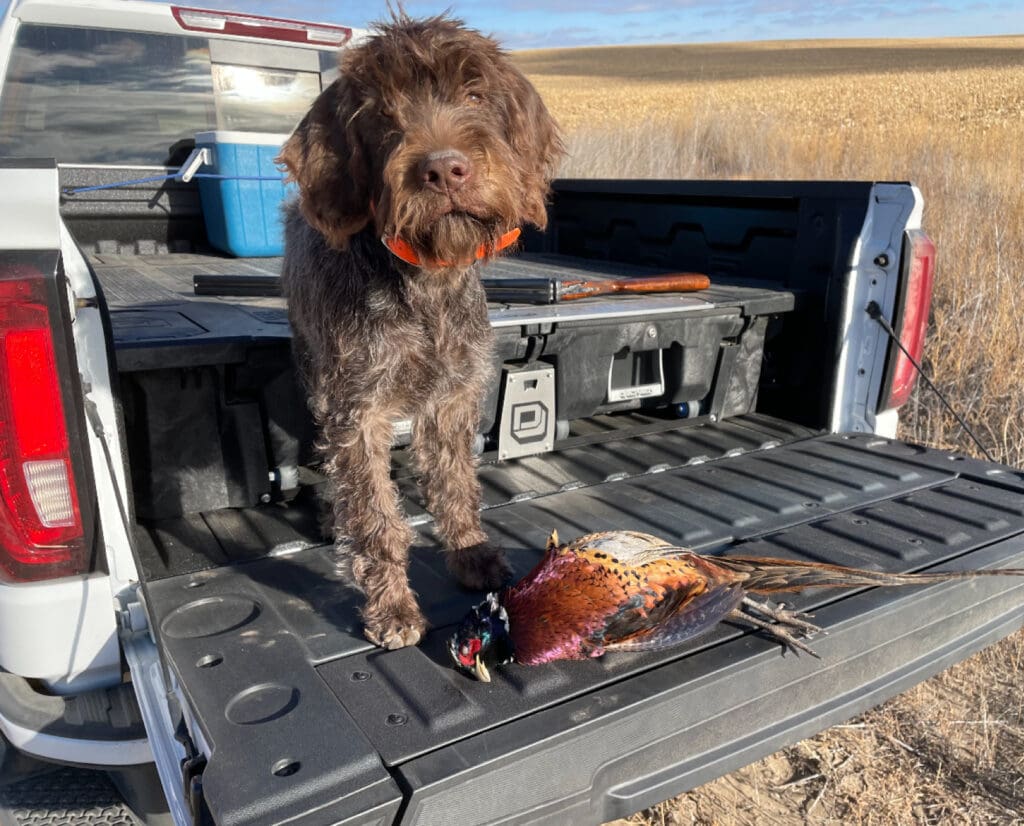
Gastropexy Case Scenario: Meet Toby, a 1-year-old male Wirehaired Pointing Griffon
Toby and his owner, Wayne, first came to me to establish Toby’s care when he was eight weeks old. They chose my practice because of my understanding and hands-on experience with hunting dogs.
Toby has a deep chest and lots of energy. At each veterinary visit, we discussed the studies and risks associated with bloat in dogs and that Toby fits some of the at-risk criteria. Wayne expressed his fears of bloat happening if he was hunting and far from civilization and veterinary care. So, we decided to perform Toby’s prophylactic gastropexy at one year of age to prevent the future potential for bloat.
- Total Surgery Time: 18 minutes
- Total Anesthesia/Surgery Prep Time: 31 minutes
- Recovery Time: 10 days
- Average Cost Range: $500-$2000
This procedure can be done during your dog’s spay or neuter appointment, too. Some insurance companies will cover this procedure, while others don’t because it is elective. Make sure to ask your pet’s provider before scheduling this surgery.
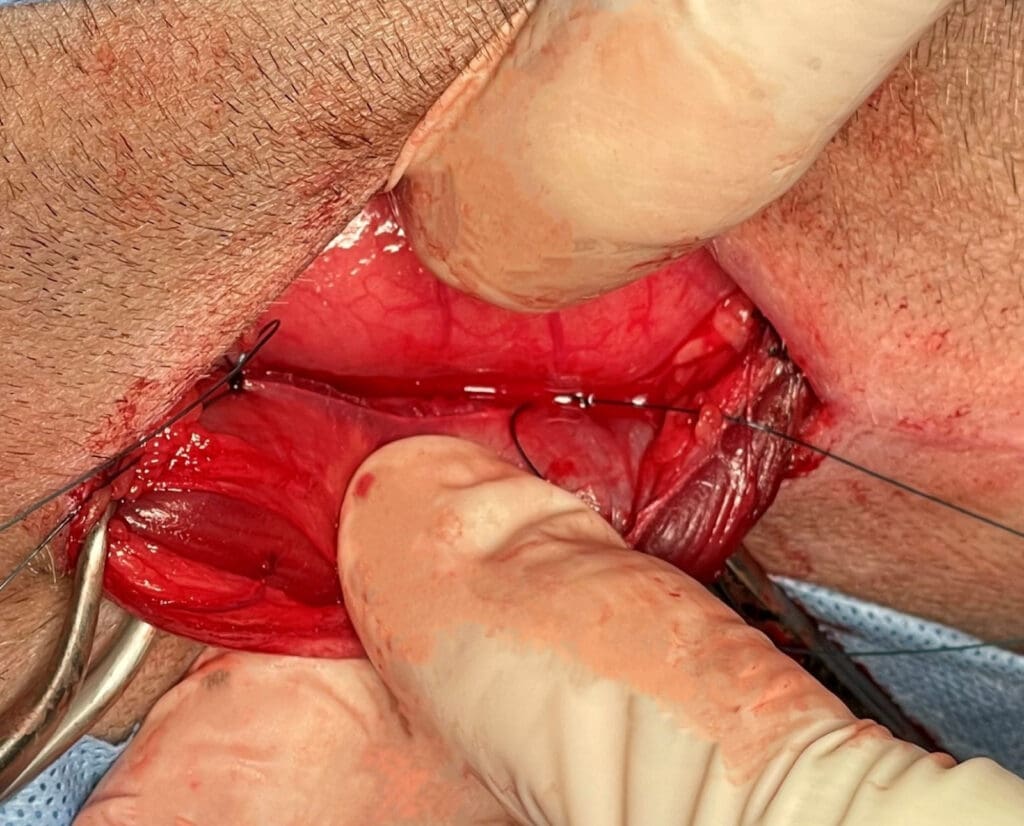
Bird Dog Owners Should Care About Preventing GDV
Our bird dogs are highly gregarious, excited, stressed, anxious, and ready to hunt. These inherent traits are all concerns with our bird dogs that are and have been linked to bloat.
As bird hunters, we mostly hunt in remote areas with limited veterinary care. Our first aid kit can’t fix this medical emergency. Bird hunters must consider the possibility of GDV and its devastating effects on you and your dog, regardless of the outcome. Bloat is a stressful, life-threatening emergency that can be a financial burden.
If your veterinarian performs the prophylactic gastropexy, you can hunt with your mind at ease. Consider this preventative surgery. It may save your best friend’s life.
Dr. Jay Brekke, DVM has been a veterinarian in Colorado for over ten years. He owns the Brekke Veterinary Clinics in Castle Pines and Castle Rock, and runs Altitude Sport Dog Health. He was raised in a hunting and bird dog family. Jay currently owns two German Shorthair Pointers, Gweny and Bizzy.

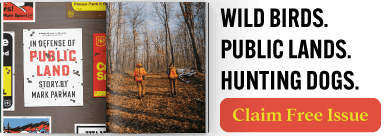
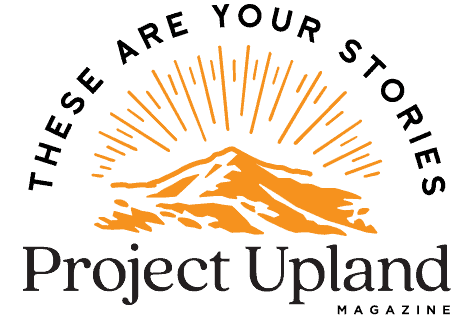

Great article. I recently had a scared with my Black Labrador when she overate as she got into a bag of our other dog’s food and decided to eat 3lbs out of 5lb bag. Initially I thought she was okay but when the next day she attempted to throw up and nothing came out, I took her to the vet. $1000 later of xrays and no bloat or GDV, thankfully. It was a stressful situation and I have wondered if the stomach tacking is something I should consider. I’m curious the recovery period to stomach tacking?
Thanks Austin. Recovery is 10 days. The procedure is very straight forward. Jay Brekke DVM
Dr. Brekke, could you elaborate on feeding your dog right after hunting? Say you’re about 1.5 hours from home…you end the hunt for the day and prepare to drive back to the kennel. Would you feed your dog at the truck immediately after hunting? If so, how much food to feed? My dog is a slow eater of kibble and would probably only eat just a little bit at the truck, but would wolf down canned food. What that be ok?